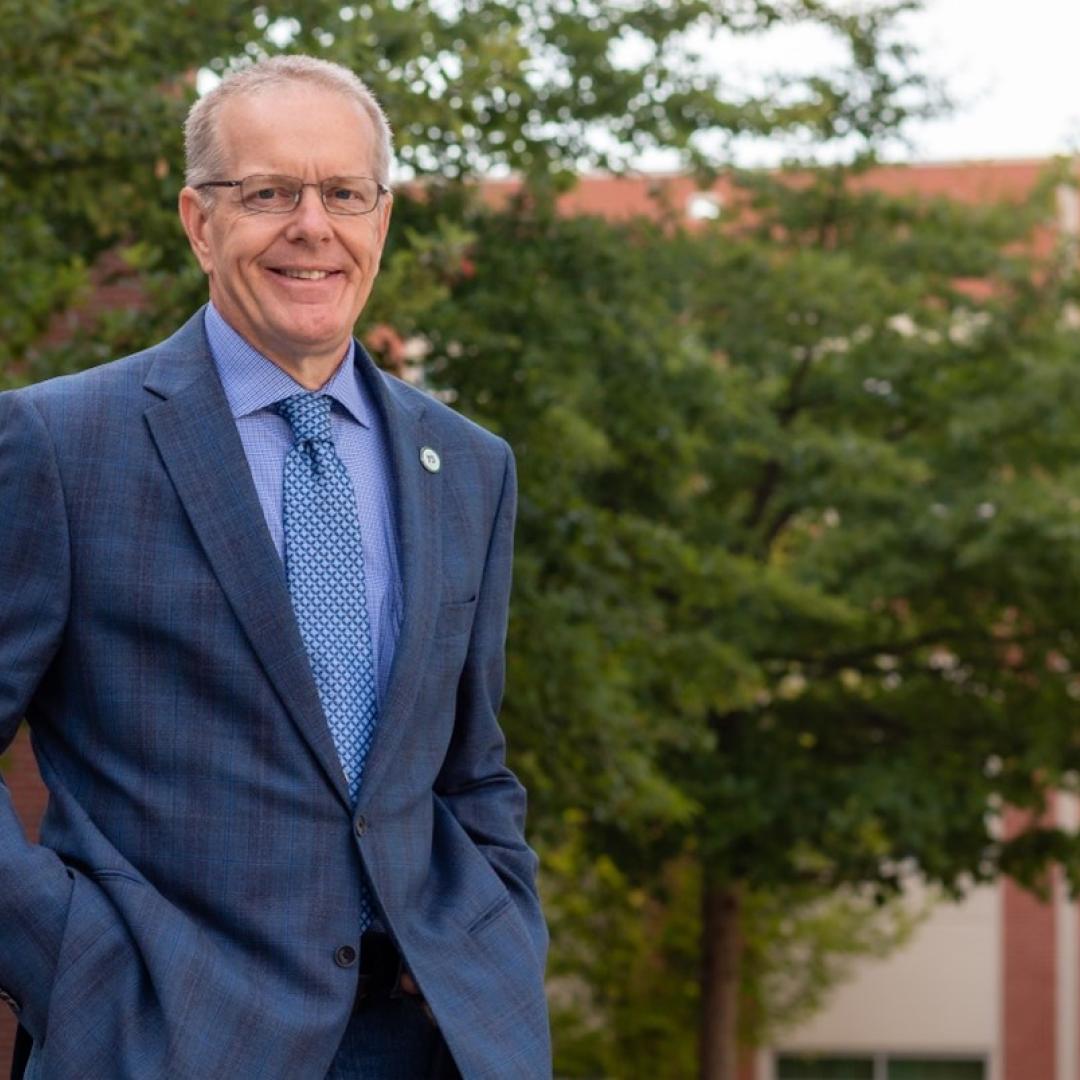
Filter News
Area of Research
- Biology and Environment (23)
- Building Technologies (3)
- Clean Energy (41)
- Computational Biology (2)
- Computational Engineering (1)
- Computer Science (3)
- Electricity and Smart Grid (1)
- Functional Materials for Energy (1)
- Fusion and Fission (3)
- Materials (14)
- Materials for Computing (1)
- National Security (5)
- Neutron Science (3)
- Nuclear Science and Technology (4)
- Supercomputing (59)
News Topics
- (-) Buildings (57)
- (-) High-Performance Computing (84)
- (-) Molten Salt (8)
- (-) Quantum Computing (34)
- 3-D Printing/Advanced Manufacturing (121)
- Advanced Reactors (34)
- Artificial Intelligence (91)
- Big Data (53)
- Bioenergy (91)
- Biology (98)
- Biomedical (58)
- Biotechnology (22)
- Chemical Sciences (63)
- Clean Water (29)
- Climate Change (99)
- Composites (26)
- Computer Science (187)
- Coronavirus (46)
- Critical Materials (26)
- Cybersecurity (35)
- Decarbonization (79)
- Education (4)
- Element Discovery (1)
- Emergency (2)
- Energy Storage (108)
- Environment (194)
- Exascale Computing (37)
- Fossil Energy (5)
- Frontier (42)
- Fusion (54)
- Grid (62)
- Hydropower (11)
- Irradiation (3)
- Isotopes (53)
- ITER (7)
- Machine Learning (47)
- Materials (144)
- Materials Science (140)
- Mathematics (7)
- Mercury (12)
- Microelectronics (3)
- Microscopy (51)
- Nanotechnology (60)
- National Security (61)
- Net Zero (13)
- Neutron Science (131)
- Nuclear Energy (108)
- Partnerships (44)
- Physics (61)
- Polymers (33)
- Quantum Science (69)
- Renewable Energy (2)
- Security (24)
- Simulation (47)
- Software (1)
- Space Exploration (25)
- Statistics (3)
- Summit (57)
- Sustainable Energy (125)
- Transformational Challenge Reactor (7)
- Transportation (97)
Media Contacts
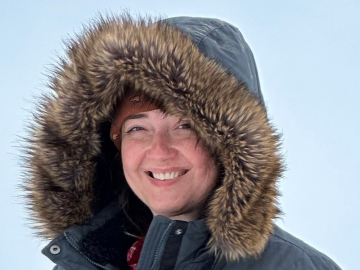
Colleen Iversen, ecosystem ecologist, group leader and distinguished staff scientist, has been named director of the Next-Generation Ecosystem Experiments Arctic, or NGEE Arctic, a multi-institutional project studying permafrost thaw and other climate-related processes in Alaska.

Researchers used Oak Ridge National Laboratory’s Quantum Computing User Program to perform the first independent comparison test of leading quantum computers.
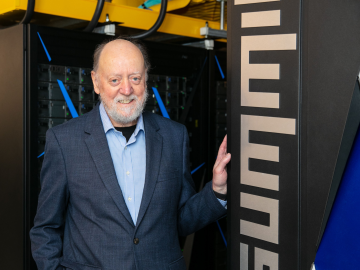
Computing pioneer Jack Dongarra has been elected to the National Academy of Sciences in recognition of his distinguished and continuing achievements in original research.

On the grounds of the University of Maine’s Advanced Structures and Composites Center sits the nation’s first additively manufactured home made entirely from biobased materials - BioHome3D.
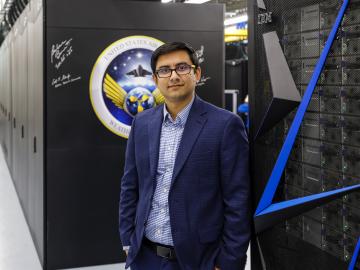
Climate change often comes down to how it affects water, whether it’s for drinking, electricity generation, or how flooding affects people and infrastructure. To better understand these impacts, ORNL water resources engineer Sudershan Gangrade is integrating knowledge ranging from large-scale climate projections to local meteorology and hydrology and using high-performance computing to create a holistic view of the future.

A study led by Oak Ridge National Laboratory researchers identifies a new potential application in quantum computing that could be part of the next computational revolution.

Using disinformation to create political instability and battlefield confusion dates back millennia. However, today’s disinformation actors use social media to amplify disinformation that users knowingly or, more often, unknowingly perpetuate. Such disinformation spreads quickly, threatening public health and safety. Indeed, the COVID-19 pandemic and recent global elections have given the world a front-row seat to this form of modern warfare.
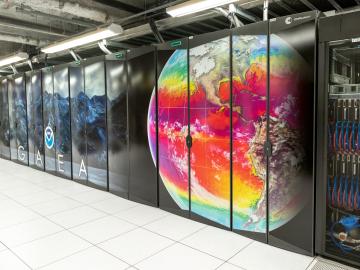
Oak Ridge National Laboratory, in partnership with the National Oceanic and Atmospheric Administration, is launching a new supercomputer dedicated to climate science research. The new system is the fifth supercomputer to be installed and run by the National Climate-Computing Research Center at ORNL.
Xiao Wang, a research scientist at ORNL, has been named a senior member of the Institute of Electrical and Electronics Engineers, the world’s largest organization for technical professionals. Wang works in the lab’s Computing and Computational Sciences Directorate’s Advanced Computing for Health Sciences Section.
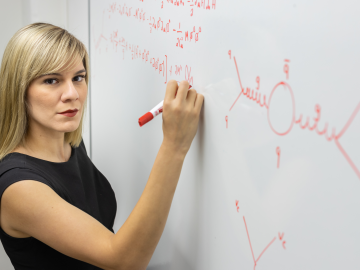
Andrea Delgado is looking for elementary particles that seem so abstract, there appears to be no obvious short-term benefit to her research.


